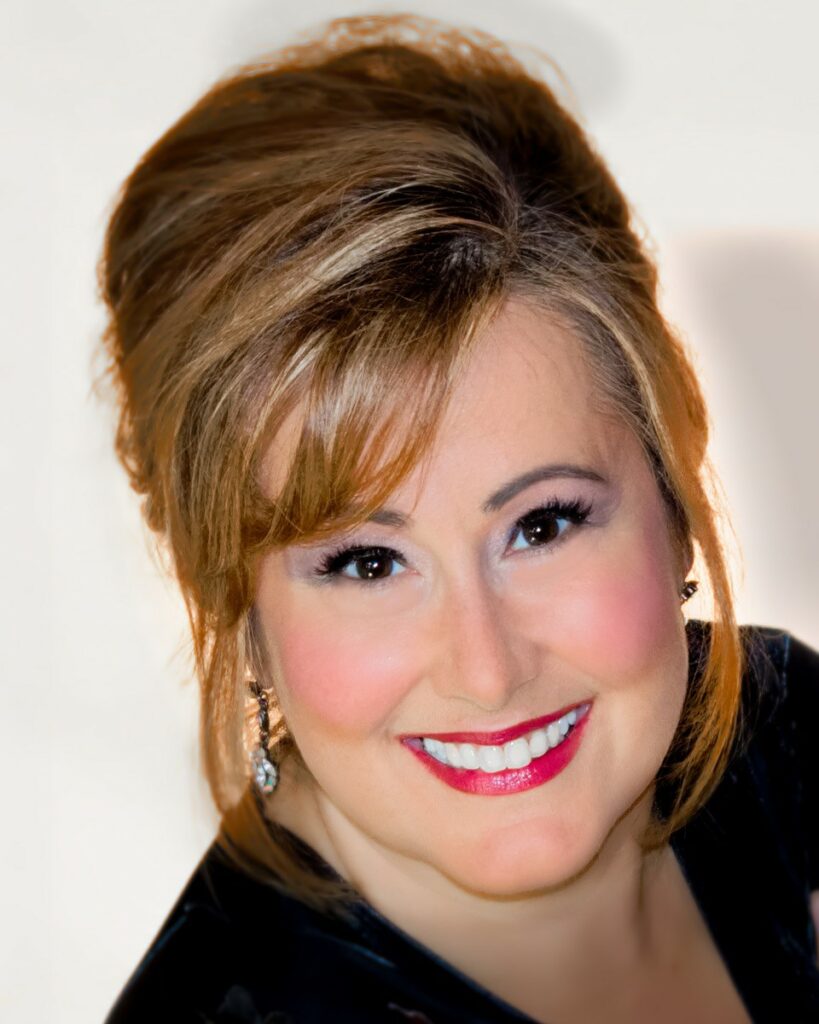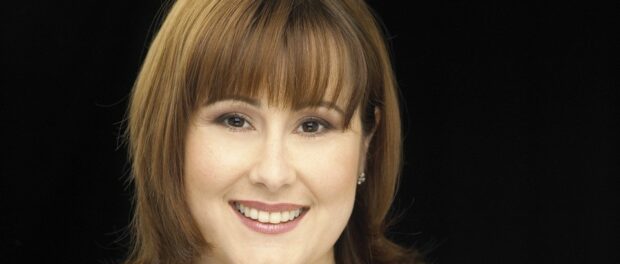OCM: Aline Kutan performs Strauss, Lehár and Mozart
For its very first concert of the year, on Sunday February 16 at 3:00 PM in Westmount’s historic Victoria Hall, l’Orchestre classique de Montréal offers music lovers back to the elegance and glory of 19th-century Vienna. Directed by Boris Brott, in this concert internationally celebrated soprano Aline Kutan will perform some of the repertoire’s most notorious operettas, bringing pieces from legendary composers such as Strauss Jr, Lehár and Mozart to life.
Karan from Rampage got together with Aline to speak about the show.
Karan: Can you please speak about the show and why you chose to take the audience down memory lane to 19th century Vienna?
Aline: Last year, I sang a Viennese program in Hamilton with the Kitchener-Waterloo Symphony and with the success it received, maestro Boris Brott called me to perform a similar concert with the l’Orchestre classique de Montréal. I was happy to oblige. This is lively and articulate music that speaks to the heart and is sure to chase away the February blues.
KS: What is the reason why Strauss and Lehar find a place in this presentation? Have you been influenced by these composers, and if so, how?
AK: Lehar’s Vilja from the operetta The Merry Widow is very special to me because it was the first official solo song I ever learned at age 11 after immigrating to Canada a year earlier. I had just joined a choir in Vancouver where my family moved and the music director, the late Irene Schmor, thought that I should enter a vocal competition offered to young singers of the choir. Needing to learn a piece, I started lessons with tenor David Meek who suggested me the Vilja’s song in English. After winning the $250 scholarship applicable towards voice lessons, I went on to continue my musical training with David and sang it regularly as a teenager. Strauss’s Fledermaus also offered me one of my very first contracts in Canada, performing the role of Adele for Opera Hamilton. The chambermaid’s Laughing song is a great piece where Adele arrives disguised at a masked ball, pretends to be upper class and makes fun of her boss, the marquis.

KS: Strauss, Lehar and Mozart weren’t contemporaries, but share music style and influences. How do these composers compliment each other’s work? And what does it say about the music of the 18th and 19th century Austria/ Europe?
AK: I would say that the main link in the music, whether 18th, 19th or 20th century is the elegance, sophistication, grace and good taste that accompany the music of these different composers who composed in Vienna. Mozart wrote in classical form of the 18th century. He was a child prodigy from Salzburg who traveled Europe extensively and wrote Italian opera as masterfully as he did in his own language. Because of his ideas of Enlightenment, his wanting equality for different classes, and criticism of aristocracy, his music did not gain popularity with the court. But his works helped to shape a society that later produced composers like Beethoven and Schubert who took it up a notch, presenting brotherhood, nature and freedom as ideals superior to that of what the monarchs dictated. This was also the time of the French Revolution and the rest of Europe following suit.
About fifty years after Mozart’s death, Europe had formed a middle class and Vienna was enjoying a boom due to its industrialization and banking. This economic growth enabled prosperity in the arts where the new patrons of music, the bourgeoisie, were able to contribute. Architecture thrived as a result and many music venues were built. Vienna, with its beautifully acoustic opera and concert halls, remains the hub of today’s musical centre. Dancing was an important activity for the Viennese, with their balls and soirées, and when Johann Strauss Jr. came to the scene, he carried the tradition of writing waltzes, polkas and operettas, like his father, gaining him the title of the king of Waltz. Though passed up as light entertainment, operetta is anything but simple, making poignant commentary on society’s angsts. Lehar was a Hungarian who started writing operetta at the beginning of the 20th century. He later managed to thrive in Hitler’s Germany, though his librettists, who were mainly Jewish, did not. His music is infused with the folk traditions of Slavic and gypsy music, writing with fiery desire and passion. He is best known for the two works, Giuditta and the Merry Widow, from which I will perform. Strauss’s Frühlingsstimme Waltzer, or the Spring Waltz, is a timely piece to welcome the arrival of spring and the well known tune will surely have people humming and toe tapping.
KS: If you were asked to place operettas in a modern context, where do you see them finding a place?
AK: London, Paris, Moscow, Washington DC and I guess Montreal – wherever there is political tension mingled with colourful politicians and families! Operetta began as a satirical genre that addressed political intrigue, the struggle between the classes, mistaken identities, and taboo subjects of society presented in easy-going, melody-filled stories. It was very popular with the French, Austrian and the British middle class of the mid 19th century because the public could listen to lighter fare with dancing and sassy dialogues in their own language instead of the more complex Italian tragic operas. For example, Offenbach in France wrote Orphée aux Enfers and Gilbert and Sullivan in England the H.M.S Pinafore, works about marital infidelity and the corruption of the monarchy told with great music and humour. Perhaps, given the nature of our complicated societal issues, it is even more pertinent today to put on these works and address our humanity’s challenges with comedy. To quench the senses while nurturing the intellect is what music is all about.
KS: Is there a reason why you have chosen to have a solo performance, versus performing with other artists? Are there particular artistic/musical choices you make when you perform alone, as opposed to working with others to decide on what you will be performing?
AK: There is really no difference in performing solo versus with other artists. Performing is about delivering the music and the text which the composer wrote. In Handel’s Messiah which I sang in December, the chorus is the star of the show and the soloists are the planets. The conductor becomes the master who keeps the orchestra of the solar system rotating smoothly with all the heavenly bodies following his gestures. Handel wrote The Messiah in oratorio form or the art of orating a story from sacred Biblical texts about the birth, death and resurrection of Christ. The upcoming Viennese concert will feature a lighter menu of secular topics; love, laughter, spring, coquetry, seduction, the homeland as well as a queen’s vengeance are themes that I will sing. With maestro Brott’s expertise and the wonderful seasoned musicians of the l’Orchestre classique de Montreal, it will be a treat to waltz to their tune!
KS: I recently saw you perform the Messiah at St. Joseph’s Oratory — how different is your preparation for a Choral performance versus something like this?
AK: My preparation remains the same though the music is, of course, very different than Handel’s baroque style and is sung in German. Strauss Jr’s Spring Waltz provides freshness, evoking nature while Giuditta’s Meine lippen sie küssen seduces and charms. Vilia is the tale of a nymph who allures a huntsman into her cave and the Queen of the Night piques some very high notes to voice out discontent. There is no chorus or other singers so I will be singing a lot more under the baton of Boris Brott’s masterful conducting.
L’Orchestre classique de Montréal’s concert will be held on Sunday February 16th at 3:00 PM at Victoria Hall in Westmount (4626 Sherbrooke West). Ticketing information can be found here.






